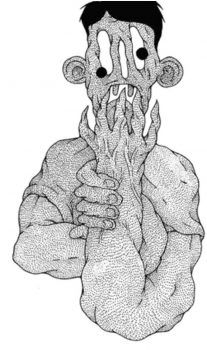Daniel Felsenthal in The Point:
 Soon after I arrive in Chicago, on an August afternoon with a heat I remember from childhood, I head to a bar on the North Side and shoot pool. I haven’t been to this city in more than a year, because going home isn’t easy. But I’ve been called back for the wedding of a close friend, which will take place later in the weekend. My friend, the groom—let’s call him X.— is a journalist, and many of the other attendees are people like me, journalists or writers.
Soon after I arrive in Chicago, on an August afternoon with a heat I remember from childhood, I head to a bar on the North Side and shoot pool. I haven’t been to this city in more than a year, because going home isn’t easy. But I’ve been called back for the wedding of a close friend, which will take place later in the weekend. My friend, the groom—let’s call him X.— is a journalist, and many of the other attendees are people like me, journalists or writers.
My pool opponent, Z., is another Chicagoan. We met in the first grade, so I can describe him with the boyish metrics our elementary school selves used to categorize and evaluate one another: he’s a better athlete than I am by far, perhaps my equal in musical ability. We are both writers, yet we never compete on the basis of our writing. At 27, drinking and shooting pool is the closest I come to an athletic field or court (until recently Z. coached soccer), and I love billiards for the same reason that I once loved team sports: the game is a largely meaningless combination of luck and skill on which I can peg my competitive drive without suffering any consequences in the rest of my life.
The six careens out of the corner and sends the cue ball into the opposite side pocket, then Z. sets up after my scratch and nails two stripes in a row. He asks me about my writing. I tell him about an essay I’ve been assigned—this essay—which is supposed to focus on writers who aspired to be musicians before they developed literary careers. It strikes me as bizarre, I say, that I always felt generous toward other writers, and competitive with musicians, who practice an art form that has nothing to do with my own.
More here.
